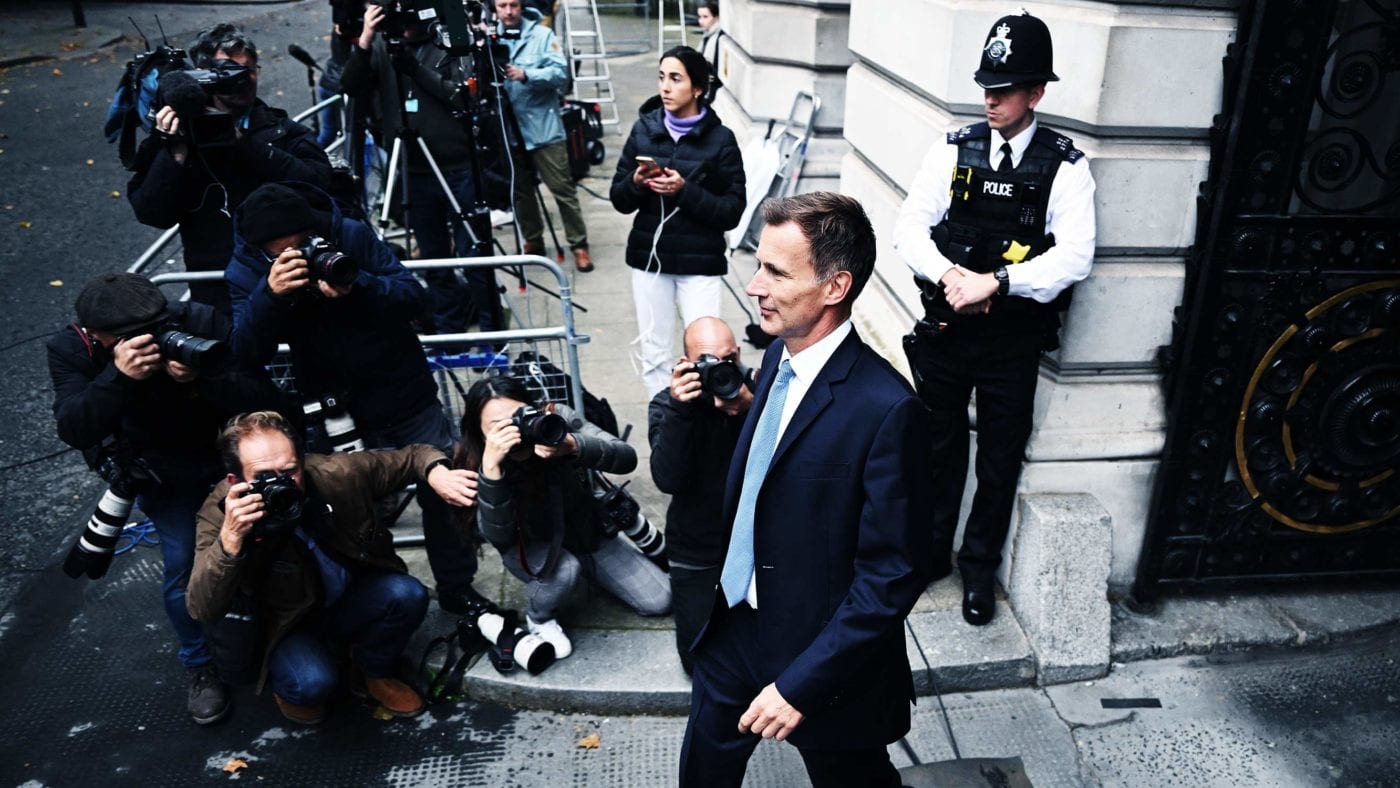Liz Truss won the leadership race, in part, by mimicking Margaret Thatcher’s dress sense; she hoped to govern by mimicking her economic reforms. With ideological ally Kwasi Kwarteng installed as Chancellor, it was time for Big Bang 2.0; changes to the City and regulatory system that would unchain the British economy, generating the growth to pay for the tax cuts pledged in the mini-budget.
In the end, the only big bang was the detonation of her premiership. The mini-budget spooked the markets with its combination of a massive financial liability in the form of capped energy prices, and demand-stimulating tax cuts which created a long-term structural deficit.
The strength of the reaction can be gauged by the observation that – for a brief period – expected interest rates went up while the pound depreciated. This is not meant to happen; higher interest rates generally lead to a currency appreciation. The two moving against one another is something we associate with developing nations experiencing a currency crisis, rather than one of the world’s wealthiest economies trialling a new economic programme.
And indeed, the pound did bounce back. This initial shock might have been survivable, but the subsequent meltdown in the pension markets sealed Truss’s fate. MPs were furious at the blow to the party’s reputation for economic management. This meltdown was not entirely the Government’s fault – yes, the mini-budget triggered the doom-loop of contagious selling which drove the crisis dynamics, but there are now serious questions as to exactly how the pensions regulator and Bank of England allowed pensions funds to get into the sort of position where these dynamics could emerge in the first place. That the Bank managed to step in to provide liquidity to fundamentally sound firms doesn’t absolve it of g(u)ilt entirely.
But the mini-budget was still the match that lit the fuse. As I said at the time, I was happy for the Government to gamble on this. The tax cuts in the mini-budget weren’t going to pay for themselves – I took them as a statement of commitment to actually carrying through with the meaningful reforms which would provide the necessary economic growth. There is, after all, plenty of room for the UK to catch up to its international peers in terms of productivity and, in doing so, raise government revenues.
Instead, when markets were initially jittery, Kwarteng leaned into it, musing about further tax cuts. Details on the growth policies supposed to pay for them – from childcare to planning reform to deregulation – were going to wait. Details on the long-term fiscal picture would also wait until late November. Combined with the refusal to commission an OBR forecast and the dismissal of Tom Scholar – no matter the reasons – this gave the impression of a government that was at the least slightly heedless of fiscal responsibility. And the markets reacted accordingly.
Getting rid of Kwarteng might have given the Government room to implement its plans with a more credible messenger. But you only get one chance at a first impression, and the Conservative Party has decided, belatedly, that it doesn’t like what it sees. Jeremy Hunt has been installed as the sensible face of the Government, shredding Truss’s plans as a signal that the party is reverting to economic orthodoxy after a month of thinking differently.
His first step has been to unwind most of the mini-budget. Some of these steps are good in and of themselves; the energy bills support package was disastrously designed, costing vast sums while making blackouts more likely. Others are flatly bad. The income tax cut reversal is neither here nor there. It’s fiscally responsible, and economically not terribly significant, even if advocates of lower taxes dislike it. As I noted last week on CapX, the earlier u-turn on corporation tax did far more damage. The National Insurance cut is still going ahead, and many of the other changes are relatively small.
The bigger issue is that Truss now appears to be living on borrowed time. Jeremy Hunt is writing her economic policies; Penny Mordaunt is answering urgent questions on her behalf in the Commons.
Her government’s meltdown has only one real potential winner left: Jeremy Hunt, in his role as statesmanlike reassurer of the markets, and representative of the Sensibles. If he can get through the next few weeks with the markets calmed and polls improved, he might even have the honour of leading the Conservatives into the most daunting election they have faced since 1997.
Click here to subscribe to our daily briefing – the best pieces from CapX and across the web.
CapX depends on the generosity of its readers. If you value what we do, please consider making a donation.


